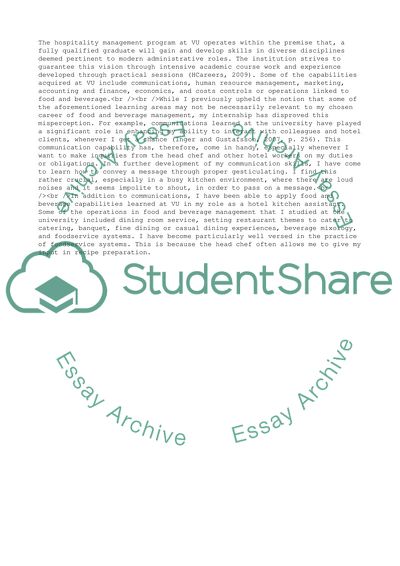Cite this document
(Usage of Theoretical Capabilities Learnt at VU While Executing the Coursework Example | Topics and Well Written Essays - 1750 words - 1, n.d.)
Usage of Theoretical Capabilities Learnt at VU While Executing the Coursework Example | Topics and Well Written Essays - 1750 words - 1. https://studentshare.org/management/1823566-reflective-journal
Usage of Theoretical Capabilities Learnt at VU While Executing the Coursework Example | Topics and Well Written Essays - 1750 words - 1. https://studentshare.org/management/1823566-reflective-journal
(Usage of Theoretical Capabilities Learnt at VU While Executing the Coursework Example | Topics and Well Written Essays - 1750 Words - 1)
Usage of Theoretical Capabilities Learnt at VU While Executing the Coursework Example | Topics and Well Written Essays - 1750 Words - 1. https://studentshare.org/management/1823566-reflective-journal.
Usage of Theoretical Capabilities Learnt at VU While Executing the Coursework Example | Topics and Well Written Essays - 1750 Words - 1. https://studentshare.org/management/1823566-reflective-journal.
“Usage of Theoretical Capabilities Learnt at VU While Executing the Coursework Example | Topics and Well Written Essays - 1750 Words - 1”. https://studentshare.org/management/1823566-reflective-journal.


